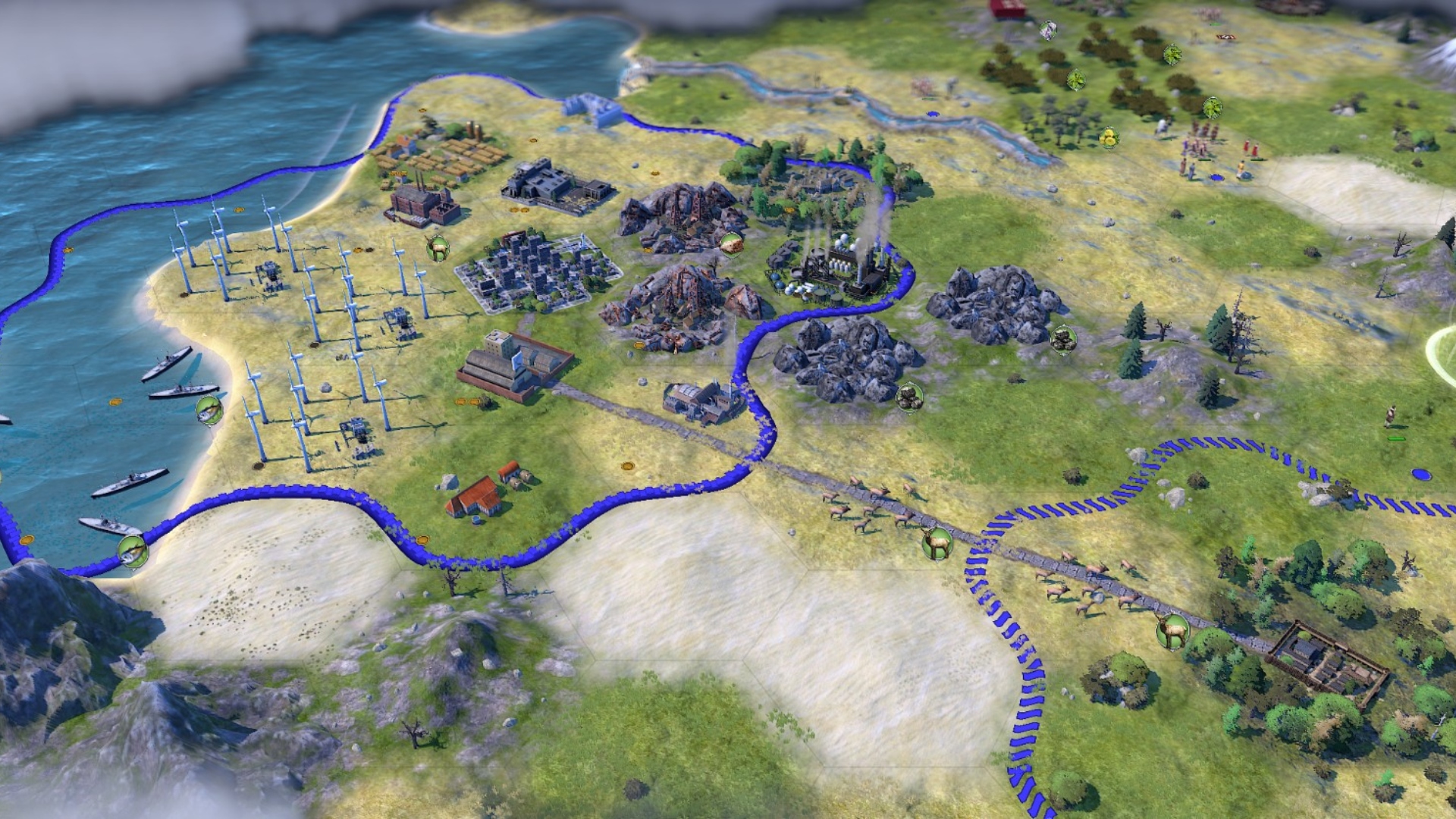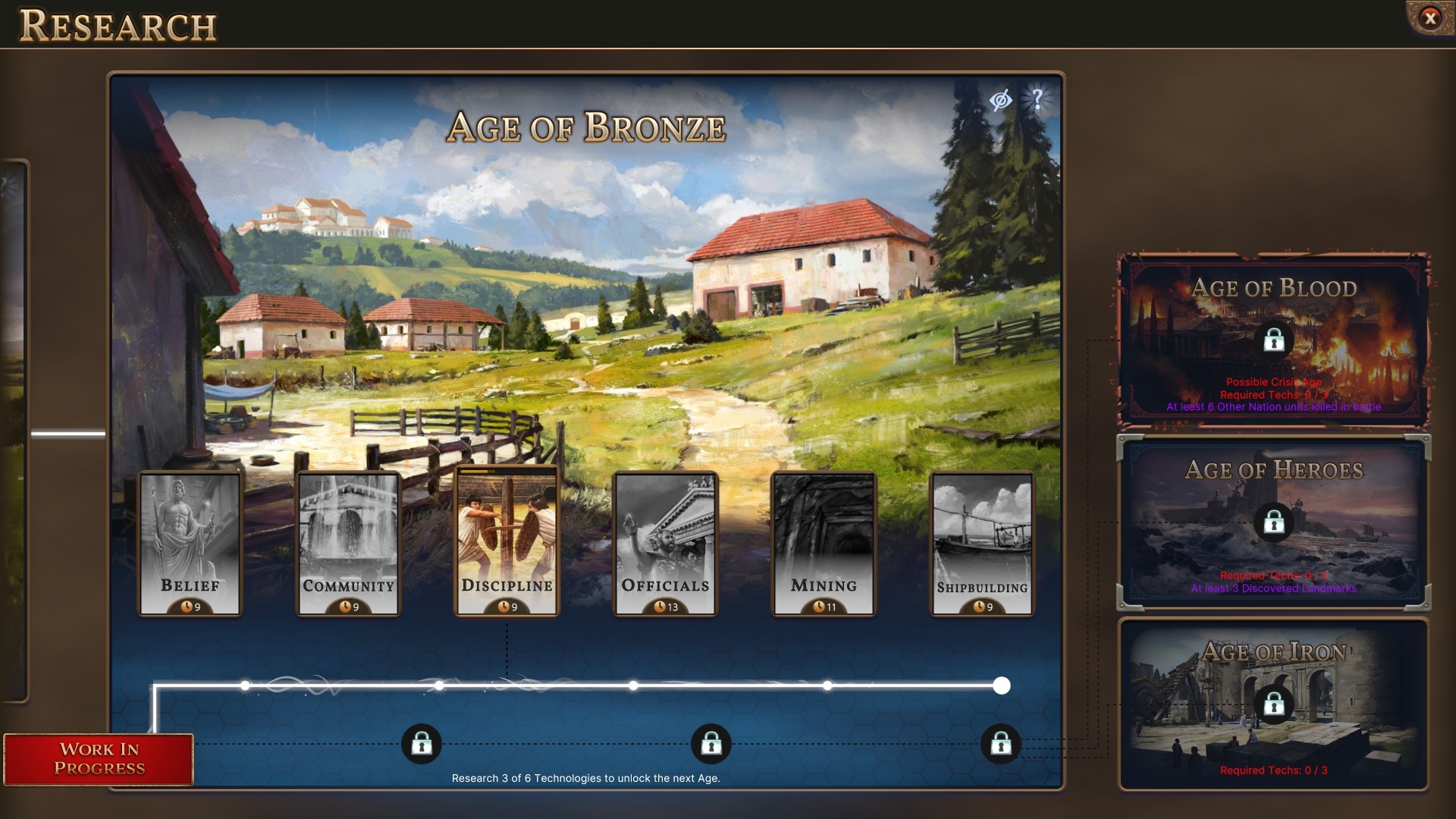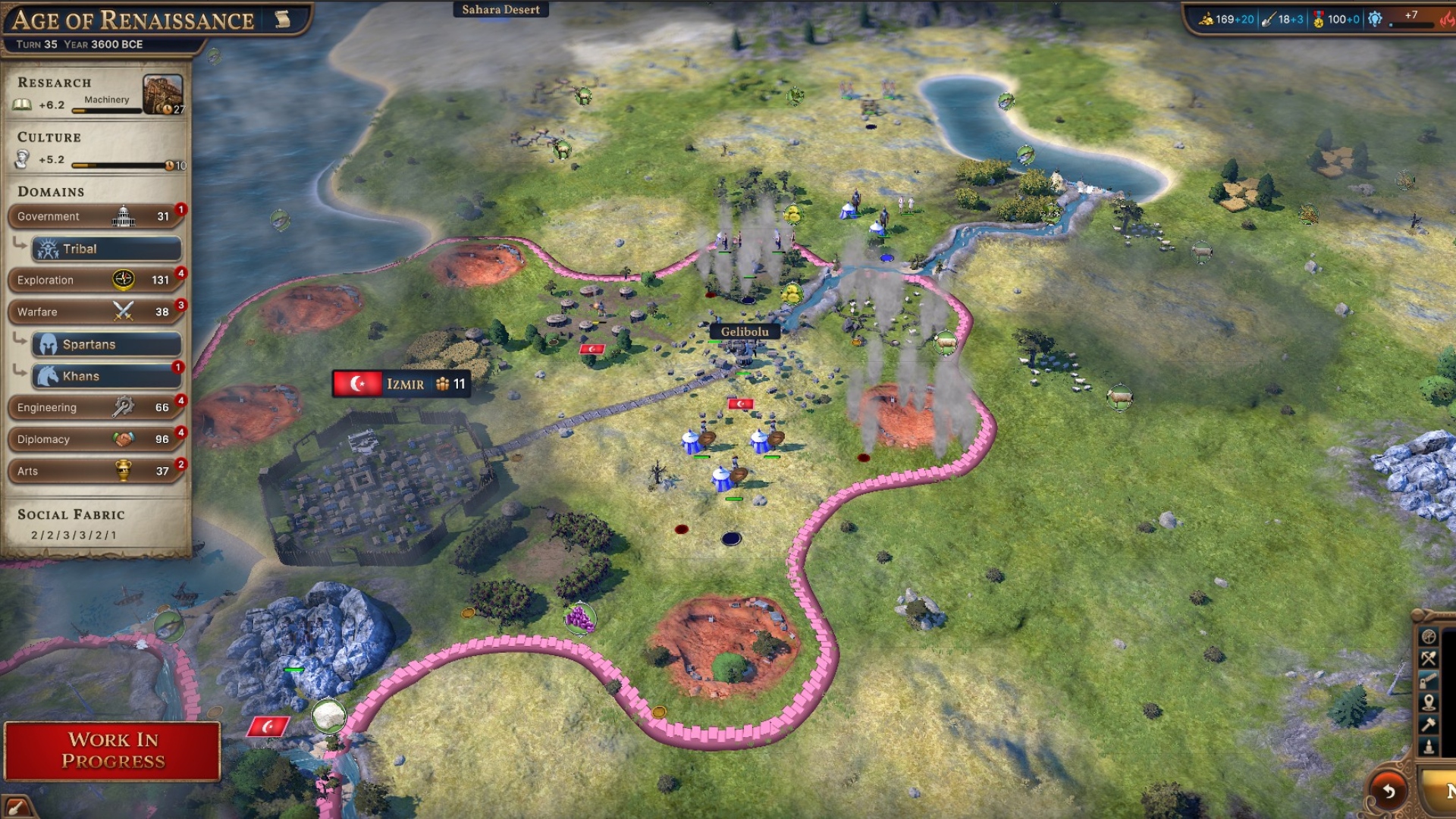Cities Skylines 2 and Crusader Kings publisher Paradox reveals a new, in-depth strategy sim with unique technology, economic, military, and victory mechanics, that’s set to rival the likes of Civilization and Age of Empires. Developed by C Prompt Games, Millennia aims to provide a more flexible, varied, and player-driven long-form strategy experience, where every decision impacts on every other, but you never hit a deadend. Nothing is fixed, everything can be tweaked and customized, and Millennia’s mix of real and alternate history, as well as fantasy and steampunk, means that each game follows a totally different path and style. Speaking exclusively to PCGamesN at Gamescom, C Prompt Games shares all the Millennia details.
From Civilization to Stellaris, Age of Empires, and more, one of the recurring issues with strategy games is that – after a certain number of playthroughs – your strategy and how you reach victory can become fixed. You know the strengths of each nation or faction. You know the best decisions to make in the early turns, and what kind of victory best suits your chosen civilization. And you know that if you make certain mistakes at certain stages, you may as well reroll the map and start over. Millennia, a new 4x game, aims to fix all this. It begins with the central pillars.
In Millennia, ages and eras do not follow a set path. Depending on certain world conditions, you can trigger variant eras that completely change what technologies are available, what challenges you will face, and even what kinds of victories you can achieve. In some cases, these are based in reality – if you do a poor job maintaining hygiene and health, you might enter the Age of Plague, whereas constant warmongering triggers the Age of Blood.

In other cases, the ages are based in alternate history or fantasy. Pursue certain technologies, and you begin the Steampunk Age. Push this further, and you can even find yourself in an age of robot overlords. The first player to meet certain conditions to trigger an age drags everyone else on the map into it with them.
If you’re a disease-ridden civilization with little regard for medicine, the entire world might soon be infected with the Age of Plague. There are two types of ages: variant ages and crisis ages. Some variant ages might be smoother and more straightforward, but even the crisis ages, which trigger if you meet a set of negative conditions, can have their advantages.
“The ages separate technology from a linear tech tree into buckets of content defined by each age,” designer Ben Friedman tells PCGamesN. “And those split off into various stages that put us into a historical but fantastical varied history type of thing. You’ll see ages like steampunk, Age of Blood, alchemy, the robot overlord stage. You’re not really sure how the game is going to go from the outset.
“Some of these are kind of framed as downsides but if you’re strategically minded you can see what those crises are and adapt to fit that. The Age of Plague is a downside for everyone, but if you’re well-suited to deal with those things, you can intentionally push everyone else down that road knowing you will come out ahead. There are also specific technologies that are unique to these ages. You can have a strategy that is built around technologies from the Age of Blood.”

Millennia’s economy is equally designed around flexibility. In some strategy sims, your starting spot on the map and the resources immediately available to you define the entire game. In Millennia, raw materials can be transformed into myriad different products and properties, and even if you lack access to some of the resources of your rivals, it doesn’t necessarily put you behind.
“We have a deeper economy and deeper armies,” Friedman explains. “You can mix and match military units, and either design your army to be well balanced, or compose your armies to counter your opponents armies. With the economy, the goods chains and improvements create a very deep and rich strategy. You have territory-based resources, but that doesn’t mean your regions have to work a certain way.
“If you have stone, that can be made into tools or weapons you can sell. Lumber can become paper. There’s a lot of variety there. We want to make sure that it truly can run parallel and not become a hard block. If you don’t have metallurgy research and can’t make iron tools, all it means is your economy will have to become different.”

Even the identity of your nation and civilization is flexible in Millennia. Rather than a straightforward set of abilities, traits, and values that define the whole game from the outset, you determine precisely what kind of culture you want to pursue. Just because you’re playing as a nation that traditionally, in real life, is very strong economically, that doesn’t mean you have to play that way in Millennia. On the contrary, if you want to build a civilization that matches the real world, the option remains available.
“If you’re playing Japan,” Friedman explains, “at the beginning it won’t affect the game much – it’s more a set of names. But if you want to play a traditional Japan, with samurai and a feudal background, you can make that happen, but also choose other decisions. Be bloodthirsty warmongers. Be traders. You can adapt based on what you like, and have your own narrative intent.
“We don’t want you to feel like you’re locked in and you made a mistake 50 turns ago, and need to reroll a map to get starting conditions that fit a strategy you want to play. There’s a lot of opportunity to be flexible. Flexibility should be part of the game, rather than the problem.”
Even victory is flexible in Millennia. Although there are some set conditions, various ages present unique win opportunities, so long as your civilization is primed a certain way. It eliminates the predictability and prescriptivism of some strategy games, creating an experience where you consistently have to adapt and adjust.

“Destroying everyone’s regions ends the game,” Friedman says. “If you’re at 400 turns, the game runs some statistics and determines who is the winner. But some of the ages are victory ages, where there are specific rules that can lead to a victory condition. We have religious victories, diplomatic victories, science victories that are built into these ages, so as you’re picking the timeline, you’re going to want to push towards a victory you’re suited for. But remember, there might be other people you don’t know about and they might be more ready for that victory stage than you are.”
A timeline that changes with every game based on your actions. Varied ages and crises. Armies that can be mixed and matched. An economy where single resources can produce dozens of products. A non-linear technology tree that alters in every era. And victories that can come from anywhere.
Millennia wants to reinvent the strategy game into something more responsive and adaptive to the player, where real history, alternate history, and fantasy combine to create one unique match after another. Though Paradox and C Prompt are yet to confirm a release date, Millennia is absolutely one to watch.
While we wait for Millennia, play the best grand strategy games. You can also try the best management games on PC.
